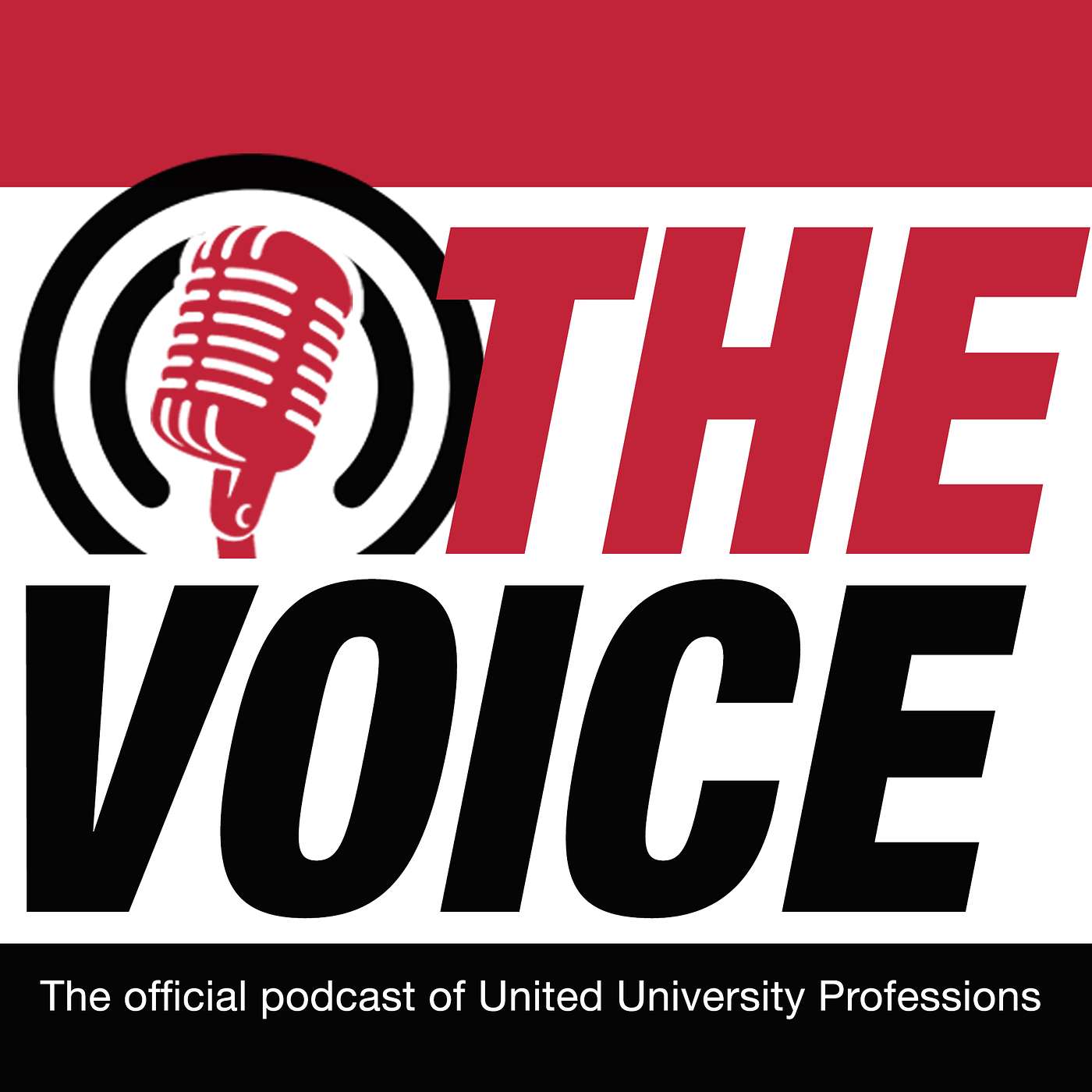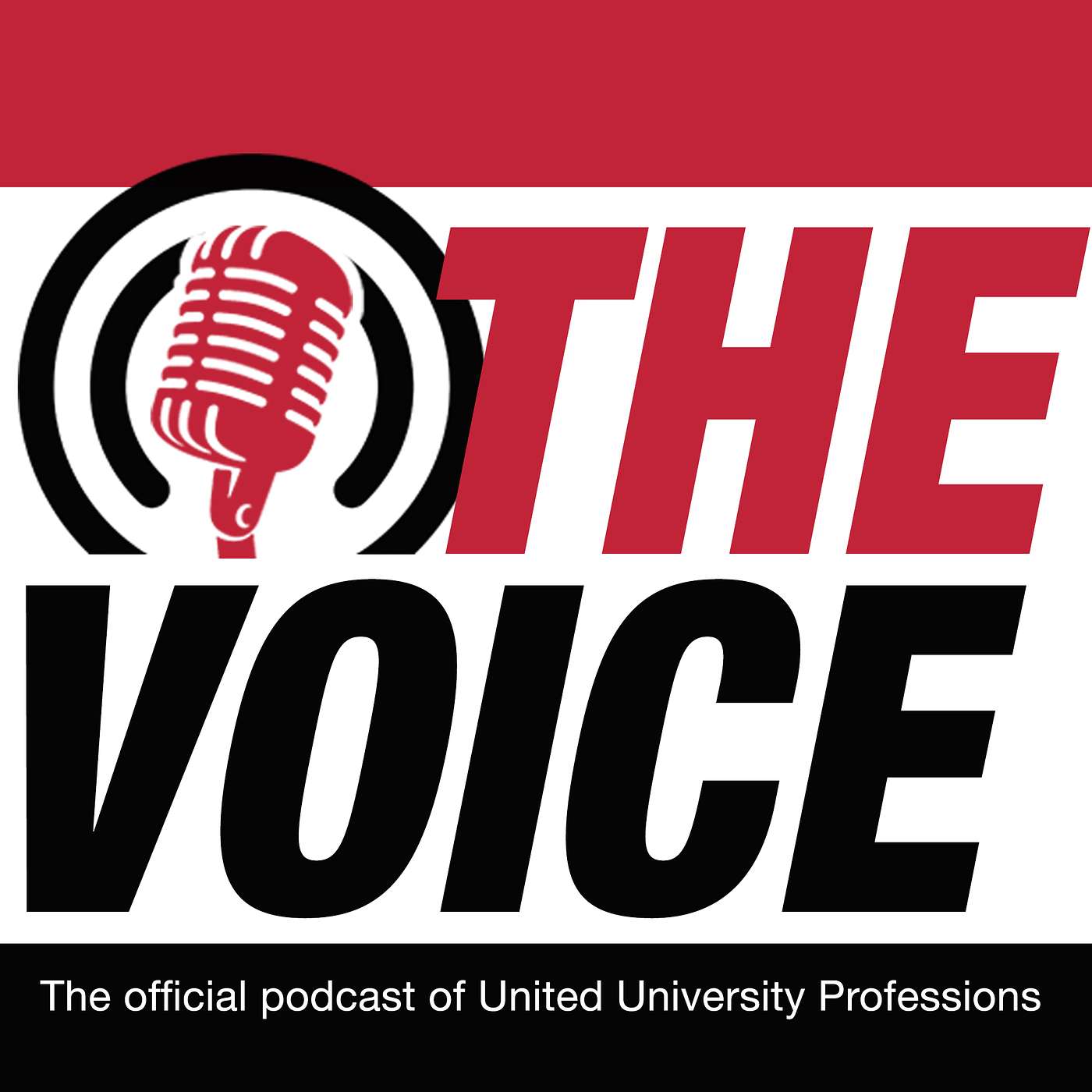The Voice Podcast
A Conversation with National Wildlife Federation President and CEO Collin O'Mara
Sep 30, 2025
Season 4
Episode 2
United University Professions
In this episode of The Voice Podcast, UUP President Fred Kowal talks with National Wildlife Federation President and CEO Collin O'Mara. Kowal, who hosts the podcast, is chair of the NWF's board of directors.
O'Mara discusses how he became the NWF's president and CEO and what led him to the post. He and Kowal talk about the intricacies of navigating political channels to protect and preserve the nationwide organization's conservation efforts and move its agenda forward.
They talk about organized labor's role in conservation and enviromental efforts and discuss the NWF's collaboration with unions and union organizations, including the Blue Green Alliance.
O'Mara also strongly supports UUP's fight against proposed SUNY cuts to faculty and staff and important environmental, conservation and forestry programs and facilities at SUNY College of Environmental Science and Forestry. The following are O'Mara's quotes regarding SUNY ESF:
- "Yeah, I mean, you know, you're getting me fired up on this one, because I sort of revere ESF, like, I mean, it's the best public school, you know, environmental program in the country, and not put on par with anybody. You know. It's absolutely, bar none."
- "We need leaders in from ESF in every agency in state government and every agency in federal government. And so the idea of contracting right now, especially as the state is trying to argue that its a leader on cutting climate action, and given some of the other things that have happened last few years, you can't win the future unless you have the talent to actually be there to meet the moment in the future right now."
- "And we're seeing this across the board, right? We're seeing the disinvestment in public institutions, you know, across the country, and it's not specific to New York. But of all the areas to disinvest and not invest in, the folks that are gonna help solve the climate crisis and biodiversity crisis in this moment and also create the jobs and the opportunities of the future is just absolutely ludricrous."
O'Mara became the National Wildlife Federation’s president and CEO in 2014, overseeing America’s largest wildlife conservation organization, with 52 state and territorial affiliates and more than 6 million members and supporters. Founded in 1936, the organization is one of the nation’s most influential conservation groups.
It also publishes the beloved “Ranger Rick” magazine, which O’Mara read as a child and says spurred his lifelong interest in conservation and protecting the environment.
From serving as captain of his high school baseball team to running for governor in Delaware in 2024, O’Mara’s rise has been swift and sure. And he’s showing no signs of slowing down anytime soon.
 A Conversation with National Wildlife Federation President and CEO Collin O'Mara
54:34
A Conversation with National Wildlife Federation President and CEO Collin O'Mara
54:34
 A conversation with New York Lieutenant Governor Antonio Delgado
58:52
A conversation with New York Lieutenant Governor Antonio Delgado
58:52
 A conversation with New York AFL-CIO President Mario Cilento
54:59
A conversation with New York AFL-CIO President Mario Cilento
54:59
 The Voice Podcast Episode 10: NYPIRG's Blair Horner tells it like it is
55:23
The Voice Podcast Episode 10: NYPIRG's Blair Horner tells it like it is
55:23
 Defusing microaggressions and enhancing inclusion: How UUP is fostering DEI initiatives on SUNY campuses
53:24
Defusing microaggressions and enhancing inclusion: How UUP is fostering DEI initiatives on SUNY campuses
53:24
 Hochul, SUNY and Trump: A conversation with New York political insider Liz Benjamin
50:20
Hochul, SUNY and Trump: A conversation with New York political insider Liz Benjamin
50:20
 Mental health, addiction and recovery: A conversation with Patrick J. Kennedy
58:40
Mental health, addiction and recovery: A conversation with Patrick J. Kennedy
58:40
 Why is childbirth deadlier when you're Black?
1:05:22
Why is childbirth deadlier when you're Black?
1:05:22
 Does Albany have the means to properly fund SUNY? You bet it does.
41:58
Does Albany have the means to properly fund SUNY? You bet it does.
41:58
 Union trailblazer Kate Mullany and the ALSC
54:06
Union trailblazer Kate Mullany and the ALSC
54:06
 Get your student loans forgiven under PSLF: The Oct. 31 limited waiver
51:54
Get your student loans forgiven under PSLF: The Oct. 31 limited waiver
51:54
 Environmental justice, electric cars and a greener SUNY
1:00:32
Environmental justice, electric cars and a greener SUNY
1:00:32
 Addressing abortion rights in a post-Roe world
58:08
Addressing abortion rights in a post-Roe world
58:08
 A conversation with AFT President Randi Weingarten
45:35
A conversation with AFT President Randi Weingarten
45:35
 Addressing systemic racism in Buffalo
1:02:21
Addressing systemic racism in Buffalo
1:02:21
 A conversation with retired UUP President Nuala McGann Drescher
48:30
A conversation with retired UUP President Nuala McGann Drescher
48:30
